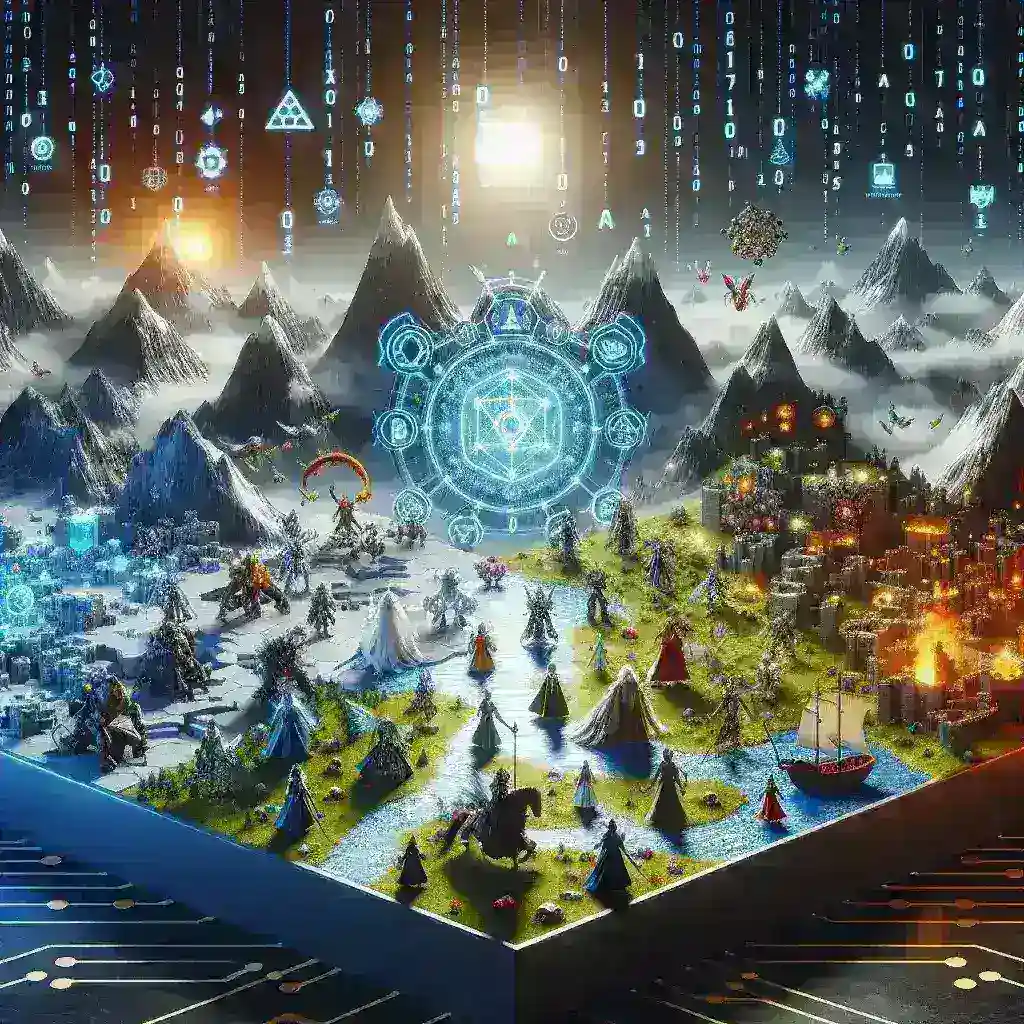Introduction
Square Enix, a titan in the gaming industry, has recently set the gaming world abuzz with its announcement of an AI-powered procedural RPG world. This innovative leap promises to reshape how players interact with video games, crafting a more personalized and immersive experience. In this article, we will delve deeply into what this new technology entails, its implications for the gaming industry, and what players can expect in the coming years.
Understanding Procedural Generation
To appreciate the significance of Square Enix’s announcement, it’s essential to grasp the concept of procedural generation. In simple terms, procedural generation refers to creating game content algorithmically rather than manually. This technique allows for the development of vast, complex environments and narratives dynamically, providing unique experiences for every player.
The Rise of Procedural RPGs
In the realm of role-playing games (RPGs), procedural generation has gained traction over the past decade. Titles like Rogue Legacy and No Man’s Sky have showcased the potential of procedural worlds, offering players endless exploration opportunities. However, these games often faced challenges, such as coherence in storylines and character development. Square Enix’s AI approach aims to overcome these obstacles, promising a more integrated experience.
Square Enix’s AI-Powered Vision
The crux of Square Enix’s announcement revolves around its advanced AI algorithms, which will generate not only landscapes but also quests, NPC behaviors, and story arcs. This development is rooted in the philosophy of creating a world that feels alive, where player choices significantly impact their journey.
Key Features of the AI-Driven RPG World
- Dynamically Generated Worlds: Players can venture into landscapes that shift and evolve based on their actions and decisions.
- Adaptive NPC Interactions: Non-playable characters (NPCs) will respond uniquely to players, leading to diverse dialogue and quest outcomes.
- Personalized Storylines: The game will tailor narratives to individual players, ensuring that each playthrough offers a fresh experience.
- AI-Driven Challenges: Enemies and challenges will adapt to player skill levels, maintaining an engaging difficulty curve.
Historical Context
The gaming industry has seen remarkable technological advancements over the years. From the early days of pixel art to the current generation of hyper-realistic graphics, each leap has transformed player expectations. Square Enix, known for its iconic franchises like Final Fantasy and Dragon Quest, has consistently been at the forefront of innovation. The introduction of AI in procedural generation marks a significant milestone in the evolution of RPGs, echoing past advancements like the shift to 3D environments and the introduction of open-world gameplay.
Pros and Cons of AI-Powered Procedural RPGs
Pros
- Endless Replayability: With dynamically generated content, players can enjoy myriad experiences without the game feeling repetitive.
- Personalization: Each player’s journey can differ vastly, fostering a deeper emotional connection to the game.
- Innovative Storytelling: AI can create intricate plots that respond to player choices, enhancing narrative depth.
Cons
- Potential for Inconsistency: While AI can produce vast amounts of content, there may be issues regarding the coherence and quality of narratives.
- Technical Complexity: Implementing advanced AI requires significant resources and expertise, which may pose challenges for developers.
- Player Adjustment: Some players may initially struggle to adapt to the unpredictability of AI-driven narratives.
Future Predictions
As Square Enix pioneers this AI-powered procedural RPG world, the implications for the future are vast. We may see a trend towards more immersive, player-driven narratives across the industry. Other developers might follow suit, experimenting with AI to enhance storytelling and gameplay. This shift could lead to a new genre of RPGs that prioritize player agency and dynamic storytelling.
What This Means for Gamers
For gamers, the implications are exciting. The promise of a world that reacts and evolves based on their decisions opens up new realms of possibility. Players can look forward to engaging with rich narratives that feel tailored to their unique playstyle, elevating the role of choice in gaming.
Cultural Relevance
This announcement also speaks to the broader cultural context of gaming. As players seek more meaningful engagement in their experiences, the need for innovative storytelling becomes paramount. By leveraging AI, Square Enix is not just enhancing gameplay but also addressing a cultural shift towards personalized media consumption.
Expert Insights
Industry experts have weighed in on this groundbreaking announcement. Dr. Emily Chen, a renowned game developer and AI researcher, notes, “The integration of AI in procedural generation is a game-changer. It allows for a level of depth and engagement that traditional methods simply can’t match.” This sentiment is echoed by many in the field, highlighting the excitement surrounding this technological leap.
Real-World Examples
Square Enix’s innovation mirrors efforts in other entertainment sectors. Streaming platforms like Netflix have successfully used algorithms to personalize viewing experiences, suggesting content based on viewer preferences. Similarly, video games can adopt this model, offering players tailored worlds and narratives, enhancing overall engagement.
Conclusion
As we stand on the brink of a new era in gaming, Square Enix’s unveiling of an AI-powered procedural RPG world heralds exciting prospects for players and developers alike. With the potential for rich, personalized experiences at the forefront, this initiative promises to change how we perceive and interact with video games. Whether you’re a seasoned RPG fan or a casual player, the future looks bright as we await the arrival of this groundbreaking adventure.




